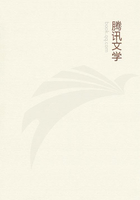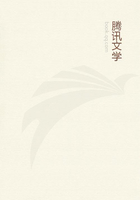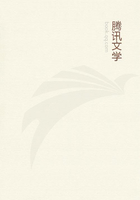IN WEIMAR.
"There lies dear Weimar, encircled in its wreath of green. Do you not see it, Wolf? I will refresh my heart with its view; so halt, postilion, halt," cried the duke. "It is more beautiful to me than stately, proud Berlin. Though a poor, gray nest, I could press it to my heart, with all its untidy little houses, and tedious old pedants. Let us walk down the hill, Wolf.""Most willingly," cried Goethe, stretching forth his arms to the little town, nestled in the peaceful valley, "be welcome, you lovely paradise, with your angels and serpents; we press on toward you with all our heart and soul, as to the seven-sealed book, filled with mysteries, and we would draw glorious revelations from your hidden contents.""And grant, ye gods, that the inspired one may at last break the seal which a cruel friend has placed upon her lips, that he may not drink the kiss of love glowing beneath," said the duke, smiling. "Do you not see the gray roof yonder, with its background of tall trees, that--""The house where dwells my beloved, my dearest friend, my sister, and the mistress of my heart," interrupted Goethe. "She is all this, for she is my all in all. The fountains of bliss and love which here and there I have drawn from, refreshing my heart and occupying my mind, flow toward her, united in one broad, silvery stream, with heaven and earth mirrored therein, and revealing wonderful secrets in its rushing waves.""Ah, Wolf!" cried the duke, "you are a happy, enviable creature, free and unfettered, sending your love where it pleases you. My dear Wolf, I advise you never to marry, for--"Goethe hastily closed the duke's mouth with his hand. "Hush! not a word against the noble Duchess Louisa, my master and friend. She is an example of refined, womanly dignity; and you, Charles, are to be envied the love of so estimable a wife and sweet mother for your children.""Indeed I am," cried the duke, enthusiastically. "I could not have found a more high-minded, lovely wife, or a more excellent, virtuous mother for my descendants. But you know, Wolf, that your Charles has still another heart, very susceptible and tender, which seeks for an affinity to call its own, and vent itself in the pleasures of youth, in glorious flirtations, melancholy signs, and blissful longings.
You cannot expect me at twenty-two to play the grandfather, and have no eyes or heart for other captivating women, though I love my young wife most affectionately, and bless Fate that I am bound with silken cords to Hymen's cart--though I am forever bound, and you, Wolf, are happily free!""Because grim Fate refuses to unite me to my beloved. Oh, Charlotte, if you were free, how blessed would I be, enchained by you! Not to 'Hymen's cart,' as the fortunate mocker says, but to the chariot of Venus, drawn by doves, enthroned upon which you would bear me to heaven!""Do not blaspheme, Wolf," cried the duke; "rather kneel and thank the gods that you are not fettered and your wings clipped. They wish to preserve to you love's delusion, because you are a favorite, and deny you the object adored. Beware of the institution which the French actress, Sophie Arnould, has so wittily called the 'consecration of adultery.' You will agree with me that we have many such little sacraments in our dear Weimar, and I must laugh when Ireflect for what purpose those amiable beauties have married, as not one of them love their husbands, but they all possess a friend besides.""The human heart is a strange thing," said Goethe, as they descended the hill, arm in arm, "and above all a woman's heart! It is a sacred riddle, which God has given Himself to solve, and that only a God could unravel!"At this instant a flash of lightning, followed by heavy-rolling thunder, was heard.
"Hear, Wolf--only hear!" laughed Charles--"God in heaven responds, and confirms your statement.""Or punishes me for my bold speech," cried Goethe, as the hailstones rattled around him hitting his face with their sharp points. "Heaven is whipping me with rods.""And our carriage has descended with a quick trot into the valley,"said the duke. "I will call it." He sprang into the middle of the road, making a speaking-trumpet of his hands, and shouted in a full, powerful voice, "Oho, postilion! here, postilion!"The continued rolling of the thunder, the whistling wind, and rattling hail, made all attempts inaudible. The two gentlemen sought shelter under the thick crowns of the oak-trees by the wayside, which formed an impenetrable roof to the flood of rain.
"I know nothing more sublime than a thunder-storm," said Goethe, looking up as if inspired; "when the thunder rolls in such awful majesty and wrath, it seems as if I heard Prometheus in angry dispute with the gods. In the dark clouds I see the Titan, enveloped in mist, overspreading the heavens, and raising his giant-arm to hurl his mighty wrath." At this instant a flash of lightning, followed by a deafening peal reverberated in one prolonged echo through the hills.
"Do you not hear him, Charles?" cried Goethe, delighted--"hear all the voices of earth united in the grumbling thunder of his wrath?
See, there he stands, yonder in heaven--his form dark as midnight. Ihear it--he calls--Overshadow the heavens, O Jupiter, With thy vaporous clouds! Cut off the oak and mountain-tops As a boy plucks the thistle. Leave me earth and my cabin Which thou hast not built, And my hearth-side, The glow of which thou enviest me! I know naught so miserable As you gods--you--"Again the mighty peal silenced Goethe, who looked to heaven with defiance flashing from his eyes and his clinched hand upraised, as if he were Prometheus himself menacing the gods.
"Proceed, Wolf," cried the duke, as the echo died away. "How can you, yourself a god, be so excited with the anger of like beings?
Proceed!"















